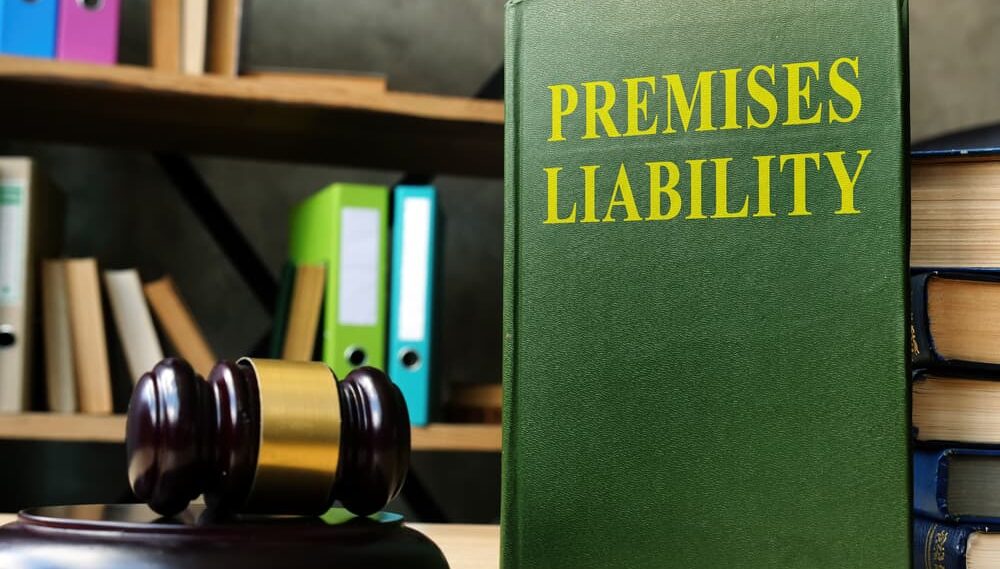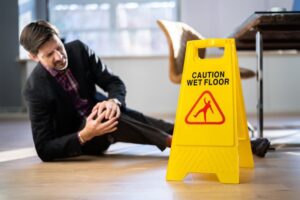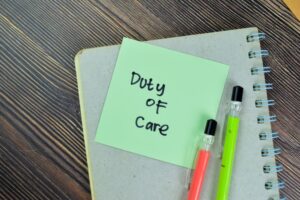
Unfortunately, injuries on someone else’s property happen far too often. Although accidents can be unavoidable, you may know that what happened to you was preventable and caused by the careless or reckless actions of the responsible party. Premises liability law allows you to receive a settlement check or financial award for damages under certain circumstances.
Like every type of personal injury case, you should hire a lawyer to put you in a position to obtain the best possible results. Since money is not an issue when hiring a Bakersfield premises liability attorney, you should do it immediately after you have suffered an injury. The result of your case may depend on this call.
Examples of Premises Liability Cases
Premises liability is an extensive area of the law that can encompass many types of accidents. The following are examples of premises liability lawsuits:

- Slip and Falls: Accidents occur when individuals lose footing on a surface, often due to slippery conditions, leading to injuries such as fractures or sprains. Often, stores or other businesses are liable for allowing hazardous conditions.
- Negligent Security: Incidents can result from inadequate security measures, leaving individuals vulnerable to crimes like assaults or theft. Businesses that fail to protect against foreseeable harm from criminal conduct should be responsible.
- Parking Lot Accidents: Collisions or injuries involving vehicles, pedestrians, or both can happen in parking areas. These often happen because the lot owners failed to maintain pavement markers, signs, or other aspects of the parking lot.
- Swimming Pool Accidents: Incidents at pools, including drownings, slips, or injuries, are often due to insufficient safety measures or lifeguard negligence. Private and public pool owners should be liable for safety violations that lead to injuries.
- Hotel Fires and Injuries: Occurrences in hotels can involve fires and related injuries, often due to inadequate fire safety protocols or equipment. Other accidents can also happen on the premises, leading to hotel liability.
- Carbon Monoxide: Poisoning can result from exposure to this colorless, odorless gas, commonly due to faulty heating systems or appliances. Often, hotels or apartment buildings with inadequate CO alarms lead to these often fatal injuries.
- Dog Bites: Injuries can happen from dog attacks, often due to owner negligence or lack of control over aggressive pets. These injuries can happen, and liability might attach even when an owner is not negligent.
- Snow and Ice Accidents: Incidents might arise from slippery conditions from snow or ice, leading to slips, falls, or other mishaps. Owners who fail to address slippery conditions due to weather can be liable for resulting injuries.
These are only some examples of premises liability claims. Anytime a property owner or occupier fails to keep the premises in a reasonably safe condition, they can be liable for any resulting accidents and injuries to customers or visitors.
If you suffered injuries on another’s property, immediately seek medical attention and then discuss your options with a premises liability attorney.
You May Receive Compensation After Suffering an Injury on Someone Else’s Property
Premises liability is the body of law that states that you may get compensation for the wrongful acts of a property owner. You must take numerous steps between the time of your injury and when you can receive a check.
Premises liability cases can be complex and challenging, and you may need to fight for an extended period before getting the compensation you deserve. Therefore, you are always better off hiring an experienced premises liability attorney to handle your case because legal help puts you in a stronger position.
Entities Responsible for the Property Owe You a Duty of Care
Sometimes, responsible entities, such as landowners or people who lease the building, will open their property to you and create a legal relationship. To owe a duty of care, all they need to do is run a business, keep their property available for the public to enter, or invite people into their property as social guests.
The Duty of Care May Depend on Your Status

The property owner’s duty of care depends on your status on the land, and some states have laws that mandate an even higher duty of care when you are an invitee. In legal terms, an invitee is a person who has an express or implied invitation to enter the land. The property owners must provide reasonably safe premises and warn of dangers.
There is another status of guests who are licensees. Here, the licensee has a more limited right to use the land without a commercial relationship with the property owner. The most common example of a licensee is a social guest who must be aware of any hazards on the premises.
The landowner owes no duty of care to a trespasser other than to avoid intentionally injuring them.
Reasonable Actions Depend on the Circumstances
You should notice that premises liability law often uses the word ” reasonable. ” The property owner does not have to guarantee you will be safe from everything on their land, and there are times when they could not have known about a danger to warn you. There are other times when a genuine accident happened. The property owner must act as a reasonable property owner under the circumstances and will:
- Not create a dangerous condition on their property
- Take action to remedy or warn the public about a hazardous condition that someone else made within a reasonable amount of time after they knew or should have known about it
- Take appropriate action to protect you from a foreseeable danger
Examples of Unreasonable Behavior that Can Lead to Liability
What is reasonable depends on the circumstances. For example, in a slip-and-fall case, it is not reasonable to expect a property owner to immediately clean up a spill in the aisle seconds after it occurs; however, it may be unreasonable if it remains on the floor for ten minutes.
In the negligent security context, a property owner may not be liable if there is no history of crime in the area. The property owner may have provided robust security even if there was a crime, which is a reasonable action.
You Must File a Claim or Lawsuit to Get Compensation
Once you have suffered an injury on the property of another, premises liability law dictates that you will have to file a claim or lawsuit to be in a position to receive financial compensation. The property owner likely has an insurance company involved in your case. Insurance companies will become the point of contact because they must defend their policyholder and respond to your claim. They will decide whether to accept liability and how much to offer you in a settlement agreement.
You Must Prove Negligence to Receive Payment for Your Injuries
First, insurance companies will be looking at whether you have sufficient evidence. Everything depends on comparing what the property owner (or the person in control of the property) did with what a reasonable person would have done under the circumstances. To make this comparison, you must prove the property owner’s negligent actions, which is not always easy when the evidence you need is not readily available. At the scene of the accident, you were likely dealing with your physical injuries and did not have time to do any investigating.
How to Prove Negligence in Your Case
Premises liability law comes down to proving that the property owner was negligent, and you have the burden of proof to show each element of the negligence test. Without evidence, you may be unable to meet your burden of proof; thus, you will need a premises liability lawyer to build the case that you need to demonstrate liability.
Your attorney will work to compile your case, conduct a full investigation of what happened, and gather evidence along the way. Your lawyer can obtain some evidence before you have to file a claim or lawsuit, including:
- Witness testimony from people who saw what happened
- Pictures from the scene of the accident
- Pictures of the area before the accident
- Testimony from an accident reconstruction expert
Then, you can obtain additional evidence if you file a lawsuit. You can request proof that is in the defendant’s possession in the discovery process, including security camera footage and maintenance or inspection logs. Discovery can also yield other crucial communications to your case, such as emails and text messages. You can also get testimony from the defendant’s employees or witnesses by taking their depositions.
You May Have to Negotiate with the Insurance Company
Insurance companies may accept liability and make you a settlement offer. Alternatively, they may deny liability, forcing you to go to court and file a lawsuit. Insurance companies are generally good about knowing which cases to settle, although they often take a harder line on slip-and-fall cases. They will not initially offer you enough money to pay for your injuries fully.
In any premises liability case, you can receive the following in compensation:
- Medical expenses
- Lost income (or a reduction in your earnings capacity)
- Pain and suffering
- Loss of enjoyment of life
- Embarrassment and humiliation
- Scarring and disfigurement
- Emotional distress
It is rare to get punitive damages in a personal injury case, but a jury may award them to you if they find that the defendant’s conduct was grossly negligent or reckless. Then, you can receive several multiples of your compensatory damages. However, you will need solid evidence of the defendant’s extreme liability, and you should not go into a personal injury case expecting to receive punitive damages.
Insurance companies will not want to compensate you for what you are due and consider underpaying claims a big win for them and their balance sheet. They want to make it as hard as possible for you to get everything you deserve. You may have to engage in extensive negotiations after you have filed a claim or lawsuit.
However, you should also know that very few premises liability cases will ever see the inside of a courtroom. You may file a lawsuit, and you may even go through depositions, but insurance companies will often realize that they need to settle the case. Still, you must present a substantial case to inform insurance companies that they need to be more motivated to pay, and your premises liability attorney will be instrumental in building that case.
How a Premises Liability Lawyer Can Help Win Your Case
You should reach out to an experienced attorney right after your injury. Time is of the essence in premises liability cases for the following reasons:
- You have limited time to investigate before you lose crucial evidence to prove your case.
- The insurance company may press you to get you on the record or accept a low settlement.
- You need to know and understand your legal options, as you may be under considerable stress.
Your attorney will perform many crucial roles in your case and will be your guide to the legal process. They also champion your legal rights, fighting to preserve them when the insurance company tries to compromise the compensation for your injuries. Your attorney will perform the primary function of standing up for you when the insurance company tries to tell an alternate story of your accident or offers you less money than you deserve. If you try to deal with insurance companies on your own in a premises liability case, you have little chance of success. They are known for reflexively denying many slip-and-fall cases, forcing you to sue.
You Do Not Have to Pay Upfront for a Premises Liability Attorney

Mickey Fine, Premises Liability Attorney
It does not cost you anything from your pocket to get legal help in your premises liability case. Like any personal injury case with uncertain legal outcomes, your lawyer will work for you on a contingency basis, meaning you do not have to write them a check to hire them to represent you. A premises liability lawyer will also not send you hourly bills while your case is pending. You only pay when you win your case, which comes directly from the proceeds.
You have nothing to lose by scheduling a free consultation, so take action today to protect your rights. A personal injury lawyers at The Law Offices of Mikey Fine is waiting to help.
